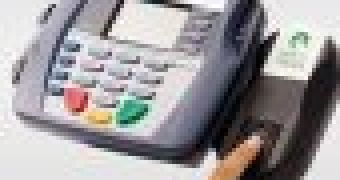Have you ever been in a situation where you are at the counter, loaded with bags of goodies, and you realize you left your wallet at home? Oh, the embarrassment...
This story is about to become history, because soon biometric scanning to make transactions is expected to be only one of many new methods that are part of a revolution in payments technology.
You will never be able to complain that you left your wallet at home, though this might be a problem for some people using this excuse to skip the paycheck.
Biometric scanning to make transactions is expected to be only one of many new methods that are part of a revolution in payments technology.
As a user, you have to go through a simple process registering your fingerprint to the system, a picture ID and linking it to some kind of checking or debit account. The system currently doesn't work with credit cards and it's supposed to be used only for purchases and to access loyalty discounts at checkout counters, with a strict privacy policy.
Retailers are especially fond of the new format because it spares them from having to pay the regular 2-3% fee for paper check processing.
Biometric information in its various forms has gained acceptance in a number of government environments, predominantly for security reasons.
And in the consumer sector, a number of Japanese and South Korean banks are using fingerprint scanners as a form of identification at automated teller machines.
There are already some private consumers biometric security measures, such as fingerprint mobile phones or laptops, and a Tampa, Florida store has successfully installed the first retail biometric payment system in the state, and it seems to work just fine as a pilot project.
Switching to large scale use seems a very real possibility, but there are some concerns that more conservative buyers will not appreciate this method, for various reasons, like hygiene (the same device will register hundreds if not thousands of fingerprints every day in a super- or hypermarket), or fear of fraud, (since a thin layer of latex applied on the scanner could copy the imprint of the finger while allowing the device to perform the transaction), or just for personal mistrust.

 14 DAY TRIAL //
14 DAY TRIAL //